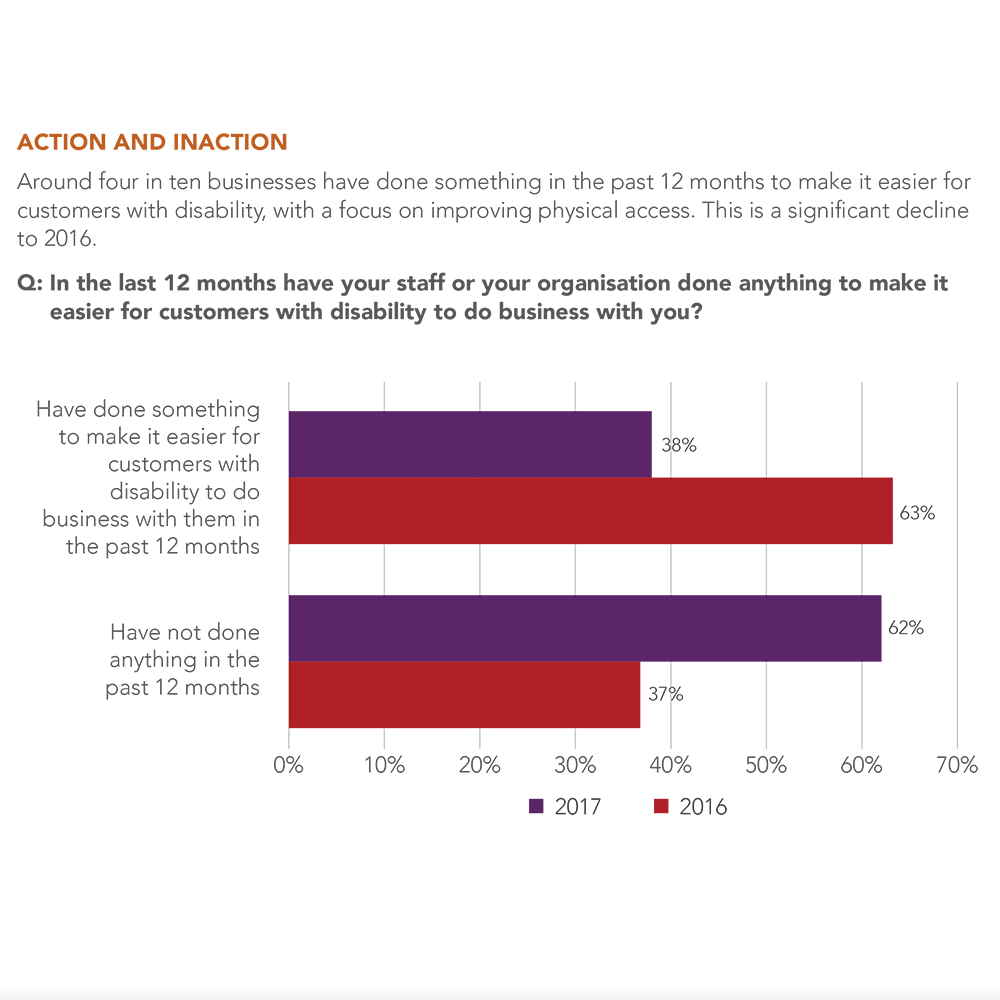SMEs struggle to find time to focus on issues such as inclusion of people with disability. This was one of the key findings from an Australian Network on Disability (AND) 2017 Disability Confidence survey that found many Small and Medium Enterprises (SMEs) still don’t have a good understanding of customers with disability. The survey of more than 500 SMEs also revealed that many hold outdated stereotypes about people with disability as employees too, a situation AND CEO, Suzanne Colbert described as “disappointing”.
Colbert told F2L jobseekers with disability, employment service providers and advocacy organisations can reach out to SMEs, “But it’s much harder to link with large businesses and large businesses are often the leaders that SMEs follow.”
Traditionally, SMEs have looked to their Chambers of Commerce, industry organisations, and government agencies for guidance on good practice, she said. “But we believe there is much more that can be done to encourage and support this large segment of Australian business to become more accessible and inclusive. There needs to be significantly more investment if Australia is to deliver on the NDIS promise of an ordinary life for people with disability and all businesses will need to be part of change.”
One of the most discouraging findings from the survey was that in the past 12 months, 62 per cent of SMEs have done nothing to make it easier for customer with disability to do business with them, half citing a lack of specific request as the main reason. This finding was supported by the Australian Human Rights Commission (AHRC) report Missing Out that showed one in three customers from diverse backgrounds, including people with disability, said their customer needs were often unmet over the past 12 months.
“SMEs need to think about how they can be more welcoming and inclusive,” Colbert said. “Unfortunately there has been no change in SMEs ability to be accessible and inclusive of people with disability in the past two years.”
The situation for jobseekers with disability was equally disheartening with only three in 10 SMEs employing people with disability. This is despite more than half of the businesses surveyed having a positive attitude to employing skilled people with disability.
According to Colbert, many survey participants admitted that they did not feel that people with disability were relevant to their work or situation. More positively, 66 per cent of those who do employ people with disability experience clear benefits, including strengthening workplace morale, improved skills set, greater customer satisfaction and improved productivity. And, 41 per cent of survey participants recognised the inclusion of job applicants with disability as important to their business. However, many businesses still see job applicants with disability as “not appropriate for our work”.
Colbert added that AND works in partnership with more than 200 large employers who are making it easier for people with disability to do business with them. However, small business is Australia’s largest business segment and needed further guidance to welcome customers and employees with disability, she said. AND is also working with members to find new ways to support and encourage SMEs, running media and communications campaigns aimed at sharing the results of the report and information about tools and resources as far and wide as possible. “We’ll also continue to work with our members and government to advise on polices and reforms,” she said.
While AND does not work directly with SME’s there are publications and resources available for all businesses to access. As a starting point Australian Network on Disability publications, such as The Manager’s Guide to Creating an Inclusive workplace and Welcoming Customers is available. SMEs can also use the free Access and Inclusion Quick Self-Assessment as a simple way to measure their current disability confidence and make a plan for improvement, Colbert said.
The Australian Network on Disability is a membership organisation that supports large complex organsiations to make it easier for people with disability to do business with them. We work with these larger employers to maximise our impact and ensure a sustainable, scalable approach to improving the equitable inclusion of people with disability across all aspects of business.
Disability discrimination receives the highest level of complaints across the board to the AHRC.
For more information visit: www.and.org.au or PH: 1300 363 465

